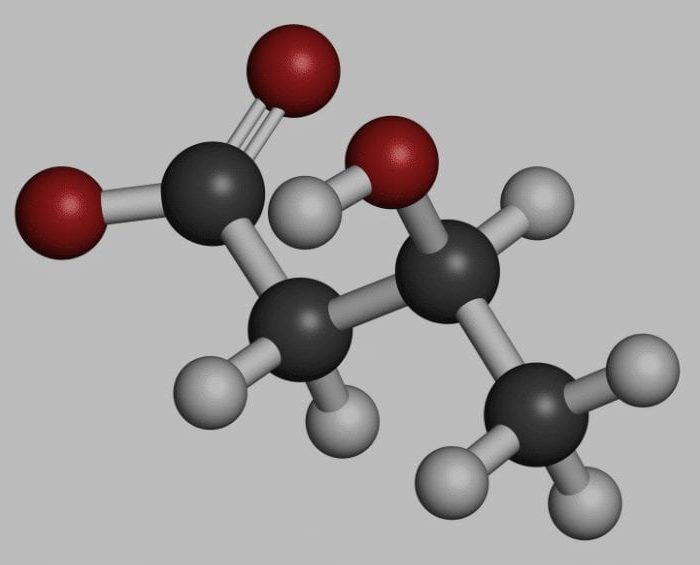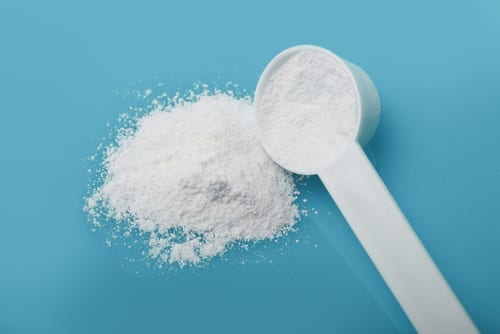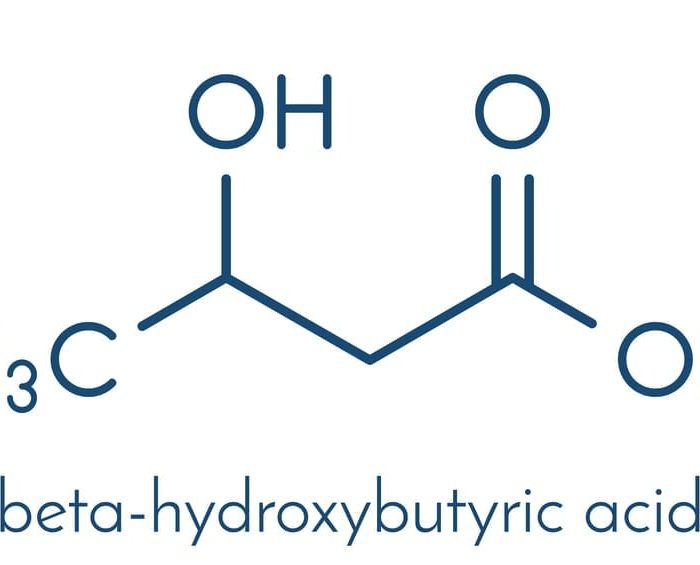
What Is Beta-Hydroxybutyrate (BHB)?
This molecule is one of the three ketone bodies produced in the absence of glucose within the body for use as energy. When supplies of glucose are…

Exogenous ketones are made outside the body (“exo” meaning outside) whereas endogenous ketones are made within the body (“endo” meaning inside). There are three different types of ketones naturally made within the body:
It is important to be aware that raspberry ketones are not exogenous ketones! They are not like the three ketones mentioned and have absolutely nothing to do with the ketogenic diet or ketosis, other than sharing the name ketone (ketone simply refers to the molecular structure).
These describe exogenous ketones that are bound to a mineral (like calcium, magnesium, potassium, or sodium). These are commonly found in powder form and are mixed into water (or another liquid). One major benefit of ketone salts is the fact that they can help replenish minerals like sodium, magnesium, and potassium you might otherwise lose on keto. One major downfall to ketone salts is the fact that they are not all created equally and some are more effective than others.
These are a liquid drink made from a beta-hydroxybutyrate ester (ester simply describe an organic compound that has at least one hydroxyl group replaced by an alkoxy group). While ketone esters are extremely efficient at elevating blood ketone levels to a high degree, the downfall is that they are both expensive and taste terrible (similar to really strong alcohol).
This form of exogenous ketones are very similar to ketone salts, except the BHB is not bound to a mineral (it is a free acid, hence the name BHB free acid). BHB free acid supplements are ideal for individuals looking to cut back on their salt intake, but few supplements on the market are able to mask the pungent taste of the free acid.

There are different forms of exogenous ketones known as isomers. Isomers simply describe molecules that are the same number and type of atoms but are arranged differently. D (also called R) and L (also called S) forms of BHB are like mirror images of one another. DL-BHB is a racemic mixture, meaning it has equal parts of both the D and L forms of BHB together. This is not as beneficial as the D (also called R) form alone because the L form can actually hinder the D form. D-BHB, also called R-BHB, is the most effective form of BHB.
R-BHB (also called D-BHB) is more effective than DL-BHB or L-BHB (also called S-BHB).
At a minimum, you need 3g of R-BHB (or D-BHB) to see benefits from exogenous ketones. You would need around 6g+ of DL-BHB to see similar results. Since the L isoform of BHB acts competitively with the D form, you see reduced availability of D-BHB use with DL-BHB.
Keto scam: https://www.youtube.com/watch?v=_jT41iTH1hE&t=61s

No, exogenous ketones and the ketogenic diet are not the same things. The ketogenic diet causes your body to produce endogenous ketones. Exogenous ketones are not meant to replace a ketogenic diet, but rather support or enhance it’s benefits. That being said, you can see benefits from exogenous ketones without being on a ketogenic diet.
Many people also frequently ask if consuming exogenous ketones can reduce endogenous production and the answer is no, to a certain extent. Research shows high doses of ketone esters can reduce lipolysis (the body’s breakdown of fat). At around 3.5mmol of BHB, insulin secretion can occur which will cause lipolysis to decrease. This will reduce endogenous ketone production. That being said, generally speaking, consuming ketone salts (DL or R) will not elevate ketones to a level high enough to blunt lipolysis.
Research shows that exogenous ketones are safe in both adults and children.
1. Provide energy: Ketones are a more efficient fuel source than glucose for the brain and heart.
2. Enhance fat loss: Ketones can help increase satiety, improve calorie efficiency, increase brown adipose tissue, and improve insulin sensitivity.
3. Improve cognitive functioning: Research shows ketones can increase blood flow to the brain and provide an alternative fuel source to brain cells whenever glucose metabolism is altered. Exogenous ketones may also help increase BDNF (brain-derived neurotrophic factor)
4. Aid in improving muscle mass and athletic performance: Ketones have actually been shown to have both anabolic (building up) and anti-catabolic (preventing breaking down) function. Ketones function as anabolic by increasing muscle protein synthesis. Ketones can also function as anti-catabolic by reducing leucine breakdown, which is the primary amino acid needed to trigger muscle protein synthesis. Ketone supplementation may also reduce fatigue and improve athletic performance.
5. Reduce inflammation: Ketones have been shown to block the NLRP3 inflammasome and reduce inflammation. Exogenous ketone supplementation can also reduce C-Reactive protein (CRP) levels, a key indicator of inflammation.
6. Reduce migraines: Ketones may help reduce migraine frequency by providing an alternative fuel source to the brain, reducing inflammation, and decreasing reactive oxygen specifies.

This molecule is one of the three ketone bodies produced in the absence of glucose within the body for use as energy. When supplies of glucose are…

Beta-hydroxybutyrate, or BHB, is a ketone body that fuels many of the benefits of a keto diet. Let’s breakdown BHB, how it works, and why it’s so important.

